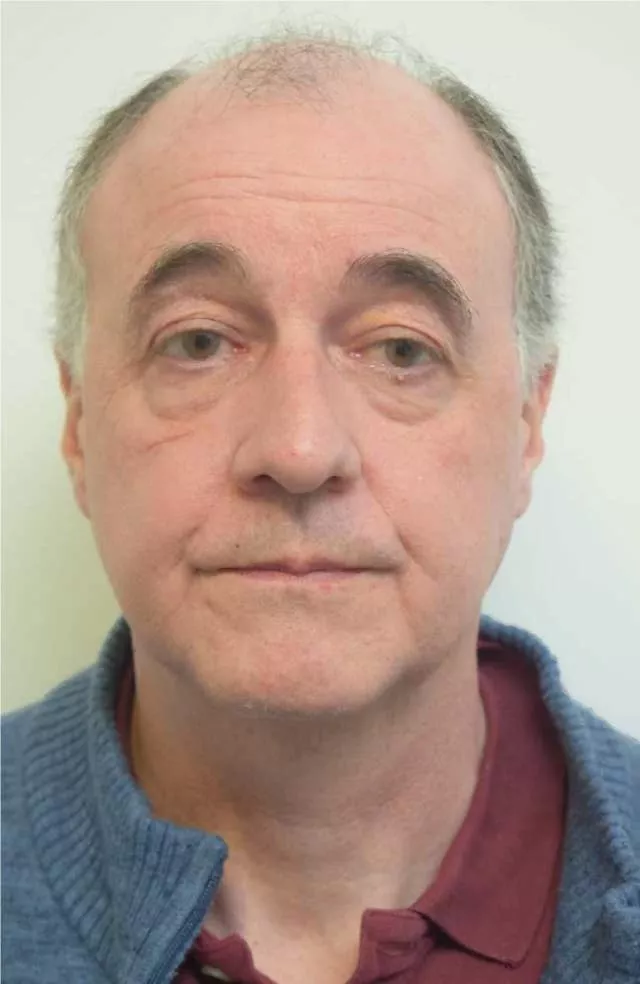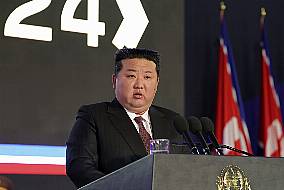Berlin spy David Smith had an “ongoing relationship” with Russia and was paid for his “treachery”, a senior judge has ruled.
The 58-year-old Scot gathered secret documents and passed them on to Russian authorities while working as a security guard at the British embassy in Germany.
He was caught following an undercover operation in 2021 and has admitted eight charges under the Official Secrets Act.

Ahead of his sentencing at the Old Bailey in London, Mr Justice Wall ruled on the defendant’s motivation.
In his ruling on Thursday, Mr Justice Wall said Smith was motivated by “his antipathy towards this country” and intended to damage the UK’s interests by his actions.
The judge dismissed the former RAF serviceman’s explanation that he only wanted to “embarrass” his employers because he was angry at his treatment and to highlight poor security.
Mr Justice Wall told the court: “I did not find him to be a witness of truth in general terms.”
He said Smith had not addressed some questions when he gave evidence at the Old Bailey and some of his answers were “incredible”.
The judge also dismissed Smith’s case that he only provided information to Russian military attachés twice, saying: “I am sure the relationship was in place for some time in 2020.
“I am also sure in the period before that, in 2018 to 2019, the defendant was collecting information from the embassy with a view to passing it on at some stage. No other explanation makes sense.”
Smith was snared in an undercover sting in August 2021 involving two fake Russian operatives – a Russian defector, Dmitry, who handed a document to the British embassy, and Russian intelligence officer, Irina, who accosted the defendant about it afterwards.
Smith was caught on camera talking to himself about Dmitry as he recorded his visit from CCTV, saying: “If he works at the embassy they will know him.”

Mr Justice Wall said: “These words must mean that he was going to provide the images (of Dmitry) to someone at the Russian embassy to view so they can investigate.
“I reject the idea he might simply have destroyed it … This was not a spur of the moment decision to do something and then think about it later.
“It was a concerted effort to get as much information relating to this visit as possible.
“He collected this material to pass on to his Russian contact.”
The judge said the filming of private areas of the embassy and identifying colleagues’ offices in June 2021 was not done “in drink on the spur of the moment” as Smith had claimed.
He said: “I am sure that it was done either under direction or at a time when the defendant had a relationship with someone from the Russian embassy and was done carefully in order to further that relationship.”
The judge also rejected Smith’s claim that he was living off the sale of military memorabilia at German flea markets.
He said it was a “safe conclusion” that he had another form of income from 2020 onwards from his activities with the Russian embassy.
The judge said Smith’s claim he wanted to embarrass embassy staff was “illogical”.
He went on: “Similarly, I reject his suggestion in evidence that he was acting in a befuddled way because of his poor mental health and regular consumption of alcohol.
“There is no logical causal connection between personal depression and betraying one’s country.
“He set about his various tasks in a calm and logical fashion.”
Mr Justice Wall said: “I am driven to the conclusion that the main motivation for the defendant to act as he did was because he felt antipathy to the United Kingdom and wanted to damage this country’s interests by providing information to a state which at that time – as now – was regarded as unfriendly.”

The judge said the reason for Smith’s “hostility” to Britain was unclear but that was the impression he gave to people who knew him.
He made negative comments about the UK in his evidence to the court, referring to its “skulduggery” in international affairs.
And at one stage he had openly supported the Russian-backed forces in the Donbas region of Ukraine, where is his wife is from.
The judge said the only explanation for the reason why Smith did not resign from the embassy he hated was his desire to use his job to further the assistance he was providing to Russia.
Mr Justice Wall said he would sentence Smith on the basis he had an “ongoing relationship with someone at the Russian embassy” and did not just supply information to Russia on two isolated occasions.
The judge said: “He was paid for his treachery and he was motivated by his antipathy towards this country and intended to damage this country’s interests by acting as he did.”
Smith, who is originally from Paisley, Scotland, will be sentenced on Friday.







